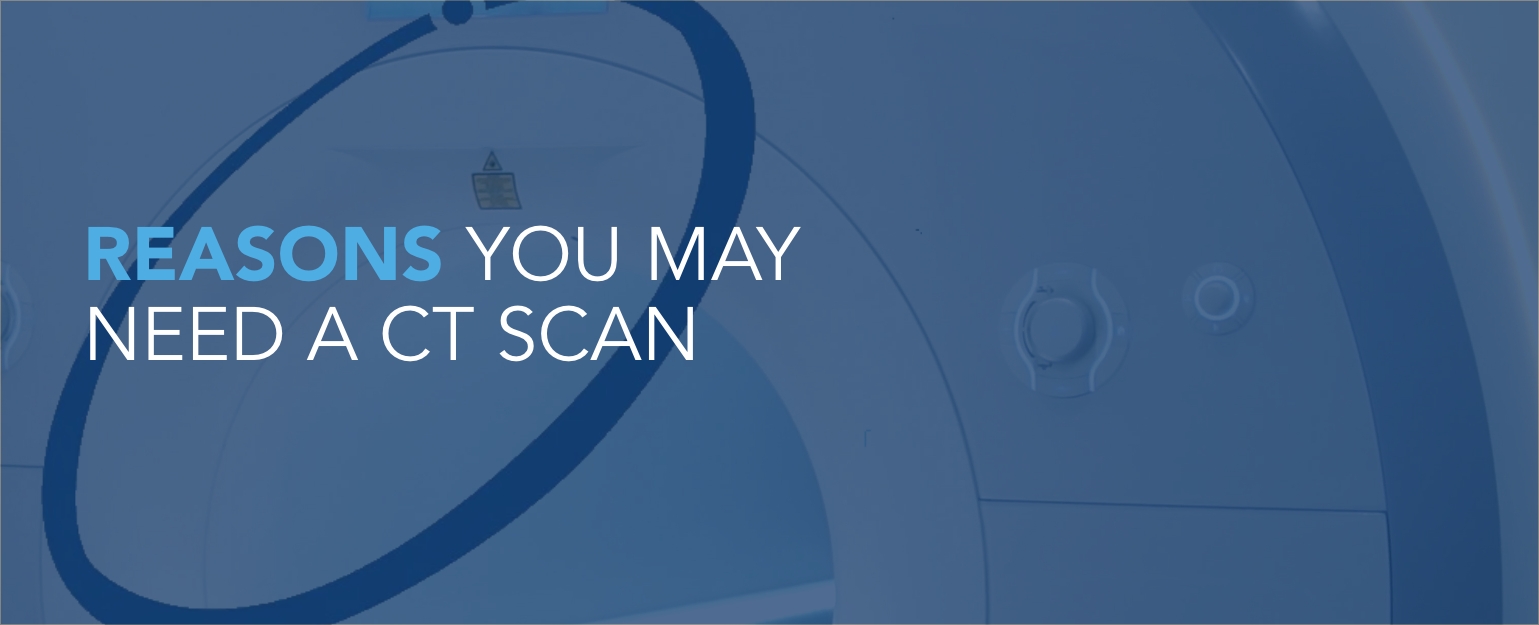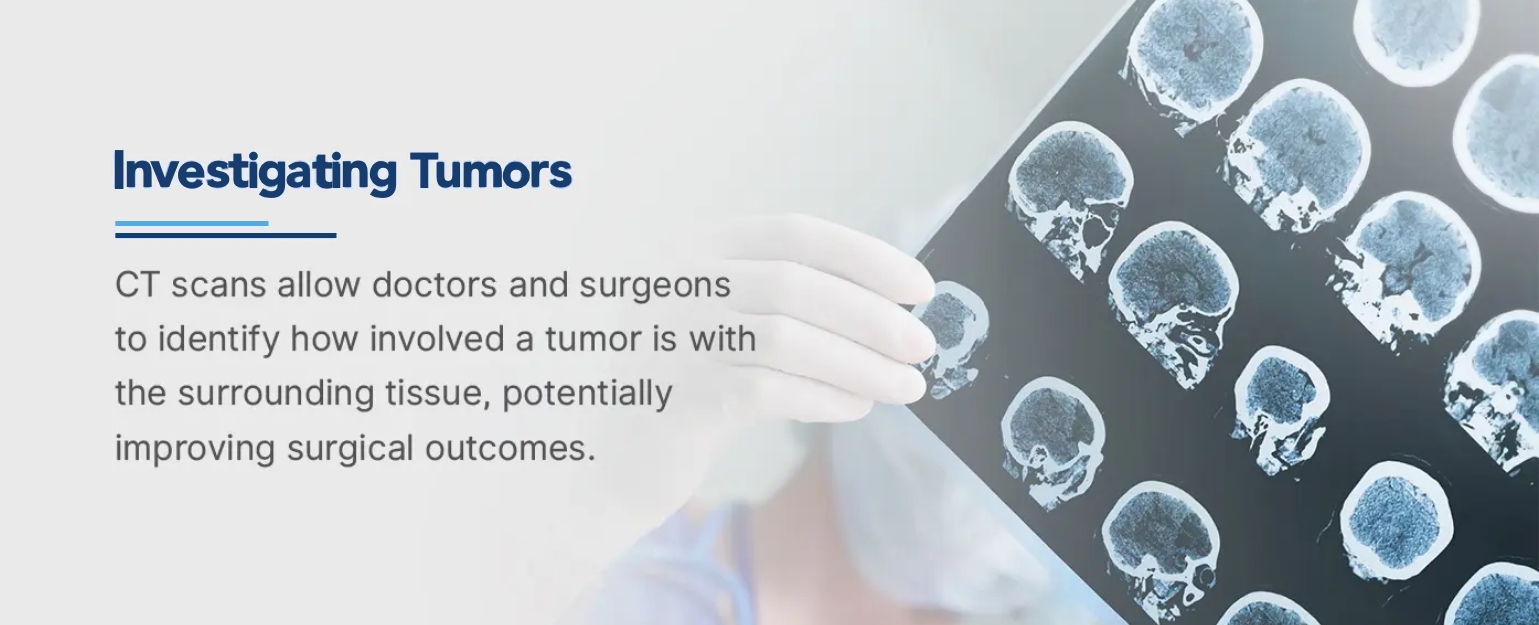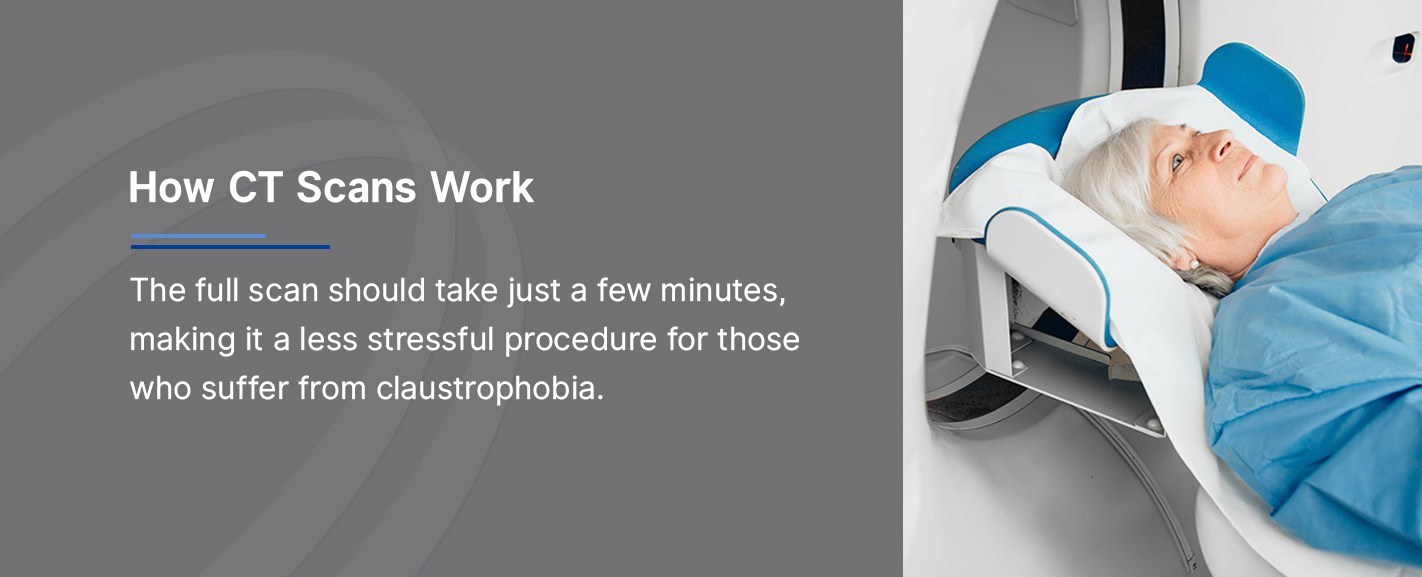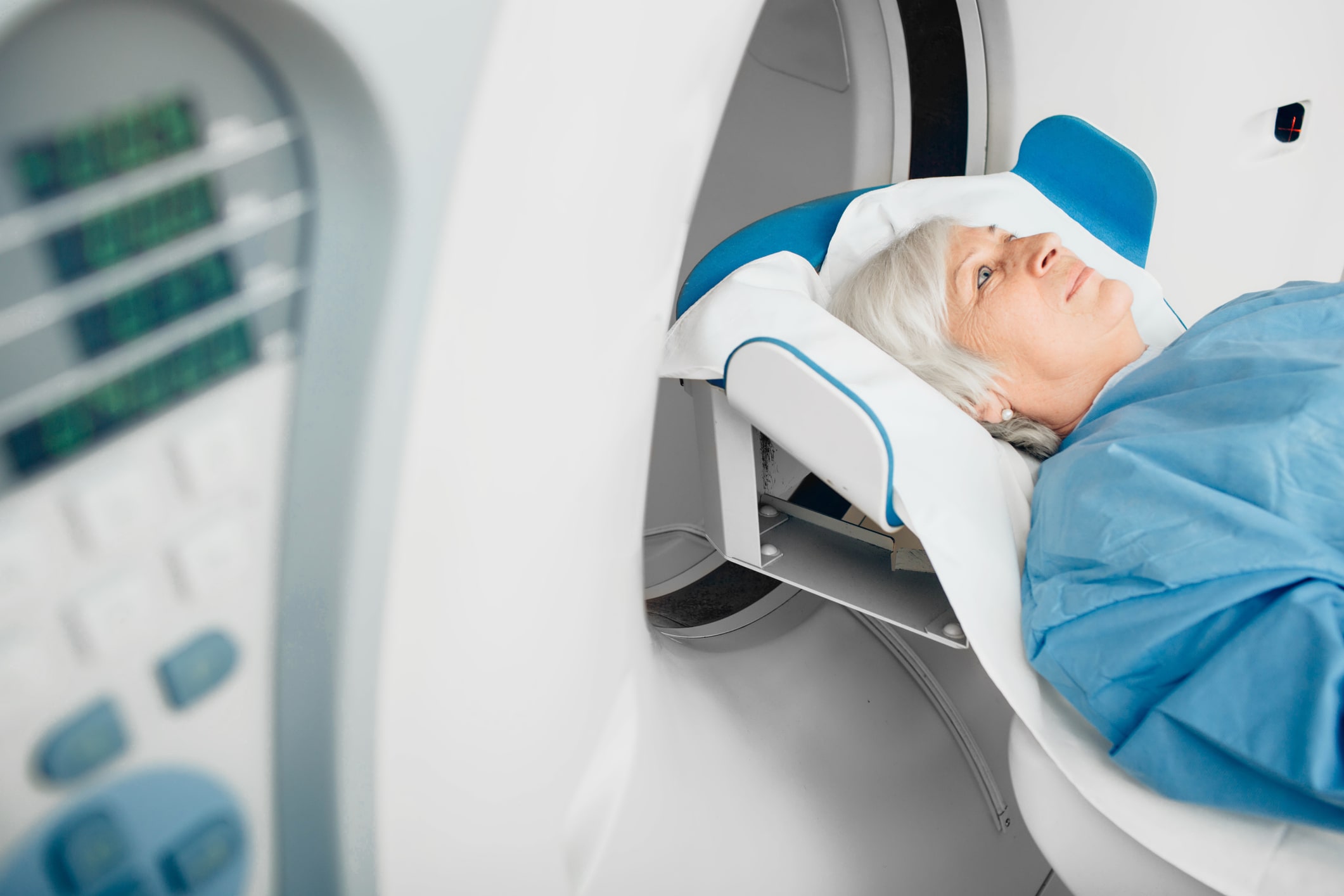Reasons You May Need a CT Scan

Computerized tomography (CT) or computerized axial tomography (CAT) scans are imaging procedures that capture two-dimensional scans of a particular section of the body. These scans take the information from multiple x-rays and combine the data to create highly detailed representations of structures within the body.
So, why do doctors order CT scans? They are used in hospitals worldwide for a variety of reasons. In this guide, we’ll discuss 10 of the most common reasons a doctor may order a CT scan.
1. Examining Blood Vessels
CT scans provide enough detail for physicians to examine blood vessels and check for blockages or other potential problems. The images provided can give your doctor the information they need to produce or reinforce a diagnosis of vascular disease without having to perform invasive exploratory surgery or surgical biopsies.
2. Diagnosing Abdominal Issues
CT scans of the abdomen may use barium as a contrast dye to produce highly detailed images of organs, including the liver, kidneys, gallbladder, spleen, ovaries and uterus. The addition of intravenous iodine-based dye further refines the images, allowing physicians to diagnose a variety of issues. A doctor might get a CAT scan of your abdomen to investigate:
- A mass in your abdomen
- Abdominal pain
- Unexplained weight loss
- Possible obstructions in the small or large intestine
- Possible inflammation in the intestines
- Kidney stones
The radiological exam that evaluates the kidneys, bladder and ureters is called a CT urography.
3. Examining Small Bones
The bones in areas such as the hands and feet are incredibly small. Injuries in these areas may not be clearly identifiable from x-rays alone, and a CT scan can provide physicians with crystal clear images that may assist in surgical repairs.
4. Investigating Tumors
When someone needs surgery on a tumor, a CT scan is often a first step in the process. The more information the surgeon has about the location and size of the tumor, the more efficiently they can perform procedures such as biopsies. CT scans also allow doctors and surgeons to identify how involved a tumor is with the surrounding tissue, potentially improving surgical outcomes.

5. Guiding Cancer Treatment
CT scans are often instrumental in diagnosing cancer and forming a treatment plan. When radiation treatment is administered, CT scans are used to clarify the position of tumors.
Doctors also use CT scans to determine the efficacy of chemotherapy as the images can show just how much cancer has spread and how quickly.
6. Examining Head and Brain Injuries or Issues
A CAT scan of the head provides images of the brain that can be used to evaluate:
- Head injuries
- Severe and chronic headaches
- Persistent dizziness
- Bleeding
- Stroke
- Brain tumors
Although less common, a head CT can also be used to:
- Evaluate of soft tissue and bone damage after facial trauma.
- Plan for surgical reconstruction.
- Diagnose issues with the temporal bone in the skull that can cause hearing problems.
- Identify inflammation in the sinuses.
- Guide the needle for a brain biopsy.
- Assess aneurysms.
7. Diagnosing Soft Tissue Damage
Traditional x-rays do little in the way of revealing soft tissue. CT scans have the double advantage of showing physicians the condition of both the bones and soft tissue, providing more complete information about the injury to aid in diagnosis and recovery planning.
8. Diagnosing Spinal Issues and Chronic Pain
Chronic back pain or an injury to the spine are among the most common reasons to have a CT scan. A doctor may also order a spinal CT scan to:
- Evaluate spinal fractures.
- Assess the condition of the spine before and after surgical procedures.
- Diagnose the source of spinal pain from conditions such as herniated disks.
- Measure bone density to predict the likelihood of fractures in those with significant osteoporosis risk.
- Evaluate congenital anomalies or diagnose scoliosis.
CAT scans are also useful in combination with magnetic resonance imaging (MRI) scans for patients with narrowing of the spinal canal, infections or arthritis.
9. Investigating Recent Injuries or Accidents
Accidents that result in severe internal injuries are good reasons for CAT scan recommendations. Internal injuries typically cannot be identified by x-ray alone, and CT scans are a physician’s first choice of imaging procedure in the event of an emergency. CT scans are often used when someone has been in a car accident or received other trauma that could produce an internal injury.
10. Obtaining Images When MRI Is Not an Option
MRI and CAT scans are somewhat similar, but there are situations where an MRI is not appropriate, while a CAT scan remains a suitable option. MRI scans can take a significant amount of time to complete. If you have a condition or injury that prevents you from lying still for that time frame, a CT scan can produce a more accurate image in a shorter time.
Those who have medical implants of any kind are ineligible for MRIs and should undergo CT scans instead.
How CT Scans Work
CT scanners are large machines shaped like a donut, which contain an x-ray tube and detectors on opposite sides. In the center is a short tunnel, where the examination table slides in and out. When you enter the scanner, the x-ray equipment rotates around you, producing vital internal images. The full scan should take just a few minutes, making it a less stressful procedure for those who suffer from claustrophobia.
Preparation for a CT scan depends on whether your doctor has ordered a contrast examination. If so, you will need to refrain from eating anything for a few hours before the procedure, according to your doctor’s instructions. With intravenous contrast, you’ll receive an injection of dye that may make you feel warm or flushed and produce a metallic taste in your mouth. You will also need to remove any jewelry or metal from your person.
After a CT scan, you can continue your day normally. If you underwent a contrast scan, be sure to drink several glasses of water throughout the day to aid in the elimination of the dye.

Be Confident in Your CT Scans at Clear Connect Medical Imaging
When your doctor orders a CT scan and you haven’t had one before, it’s normal to be a little apprehensive. Luckily, when performed by qualified and caring technologists, CT scans can be a simple and short procedure that helps flesh out the care plan you’ll receive for any conditions you may have.
Clear Connect Medical Imaging provides world-class medical imaging to patients in the Denver and Boulder areas. Why get a CAT scan at Clear Connect Medical Imaging? Because we prioritize safety, provide exceptional service to make the whole process as comfortable as possible. To learn more about our services, contact one of the many Clear Connect Medical Imaging locations in Florida.
Call To Schedule Your Appointment
Sources:
- https://www.ncbi.nlm.nih.gov/pmc/articles/PMC5893493/
- https://clearconnectimaging.com/services/mri-scans/
- https://clearconnectimaging.com/services/ct-scans/
- https://clearconnectimaging.com/locations/



